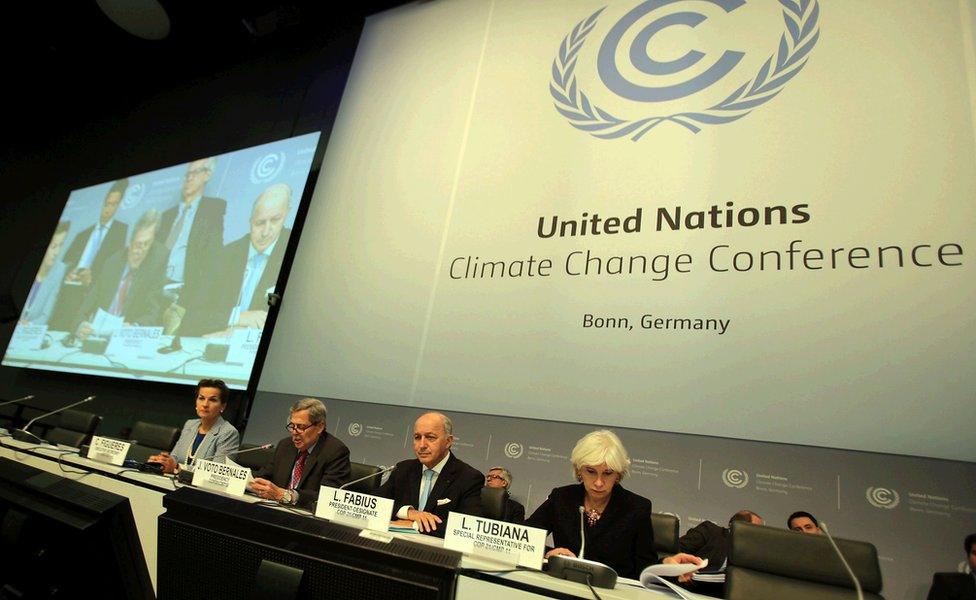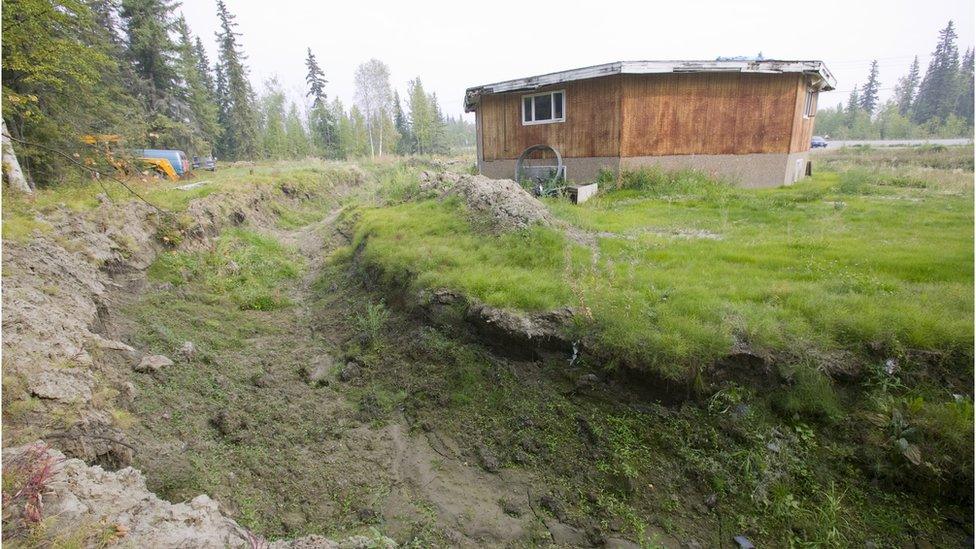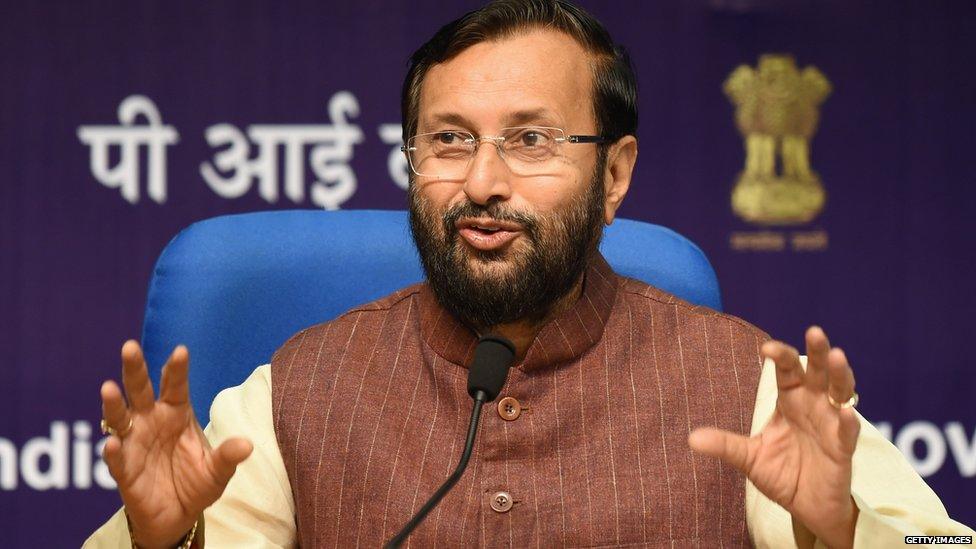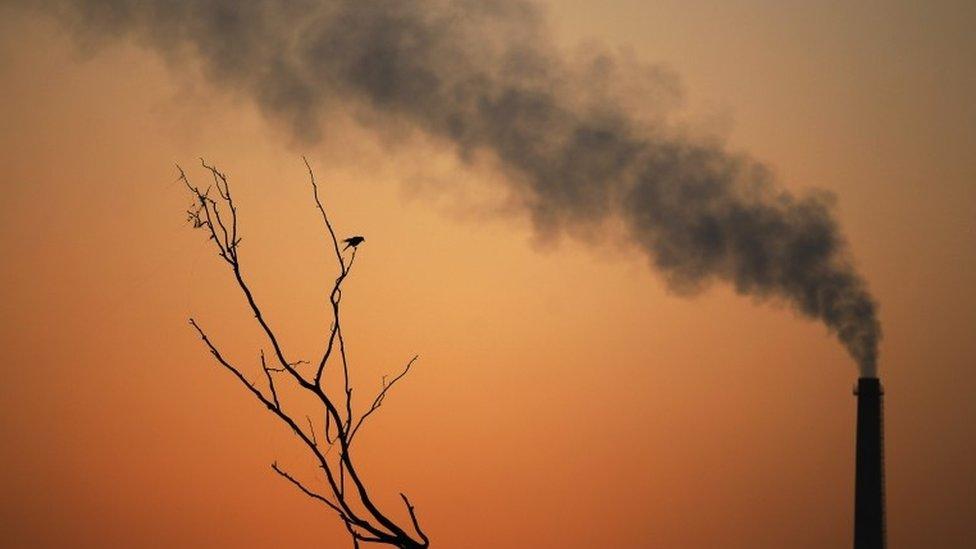Bonn climate talks: Questions over cash dominate
- Published

Bonn talks: Time is pressing to sort at deal in Paris in December
Negotiators meeting in Germany say that questions over cash are the biggest barrier to a new global climate deal.
The Bonn talks are the last chance for delegates to clarify their positions before the Paris conference that aims to seal a new binding treaty.
Developing country delegates said clear guarantees on finance must be a core part of that compact.
Officials said that finance was likely to be the very last issue to be resolved before a deal is struck.
Money has always been at the root of difficulties in solving the climate issue.
Developing countries point out that while they had done least to create the problems associated with more carbon in the atmosphere, they were the ones already feeling the greater impacts of a warming world.
Howls of protest
They have long sought significant flows of finance to help them curb their emissions and to cope with the storms and droughts expected to be more common in a changing climate.
In Copenhagen in 2009, as countries tried to put together a comprehensive agreement, the richer nations promised to provide $100bn a year in climate finance from 2020.
That deal ultimately failed, but countries are hoping to conclude a more ambitious agreement in Paris in December.
However, a draft of the deal, released to the negotiators here at the beginning of the week, drew howls of protest from developing countries. They felt many of their key negotiating interests had been ignored, especially on the issue of finance.
After some angry exchanges, the co-chairs of the meeting in Bonn revised their draft and added an extra 14 pages to reflect some of the poorer nations' perspectives.
Real issues
That row has galvanised the G77 and China group of countries, a body representing more than 130 nations in the negotiations, and accounting for around 80% of the world's population.
According to the group's chairman, climate change for these poorer nations has far greater consequences and is often a matter of life and death.
"It is not a photo opportunity; it is not an instagram or selfie moment. It is a reality we have to deal with on a day-to-day basis," said Ambassador Nozipho Mxakato-Diseko of South Africa.
She said that for this group, the question of finance was the most crucial issue for any new agreement.
"Whether Paris succeeds or not will depend on what we have as part of the core agreement on finance," she told reporters.
Overseas aid
The G77 group are looking for increases on the $100b per annum from 2020 that was previously promised.
They have dismissed recent research from the OECD suggesting that richer countries had provided $62bn in 2014-15 as climate finance.
The poorer countries want money to come from new public sources and question the reliability of private finance.
Ambassador Diseko also accused the richer nations of dirty tricks, saying they were keen to exclude observers from civil society groups because they wanted to pass off overseas development aid (ODA) as climate finance.
"Developed countries have not negotiated in the hope that [finance] will be sorted externally of the agreement where we are weakest, and it translates into ODA as opposed to the obligations that must be put here - and the reason why they don't want civil society in, because that's where they hope they will get away with it."
Changing times
Other members of the G77 group were just as scathing in their analysis of the position of the richer nations.
On the highly contentious issue of loss and damage, where poorer countries are seeking compensation for climate damages, the G77 are standing firm.
Developed countries are wary about including a provision on loss and damage in the Paris agreement, as they feel it will make them legally responsible for storm damage and rising seas in many parts of the world.
"It is deeply concerning for us when we hear the calls not to include this issue in the discussions," said Juan Hoffmaister from Bolivia.
"Because at this stage with the science and the knowledge we have available, to talk about not having loss and damage is the equivalent to climate denial," he said.
Representatives of richer countries were unmoved by the G77's hardening position on finance.
They said that the world had changed significantly since 1992 and that the richer developing countries, including China, should donate more to the least developed nations and island states that were likely to be worst affected as temperatures rise.
Follow Matt on Twitter @mattmcgrathbbc, external.
- Published22 October 2015

- Published2 October 2015

- Published2 October 2015

- Published16 September 2015